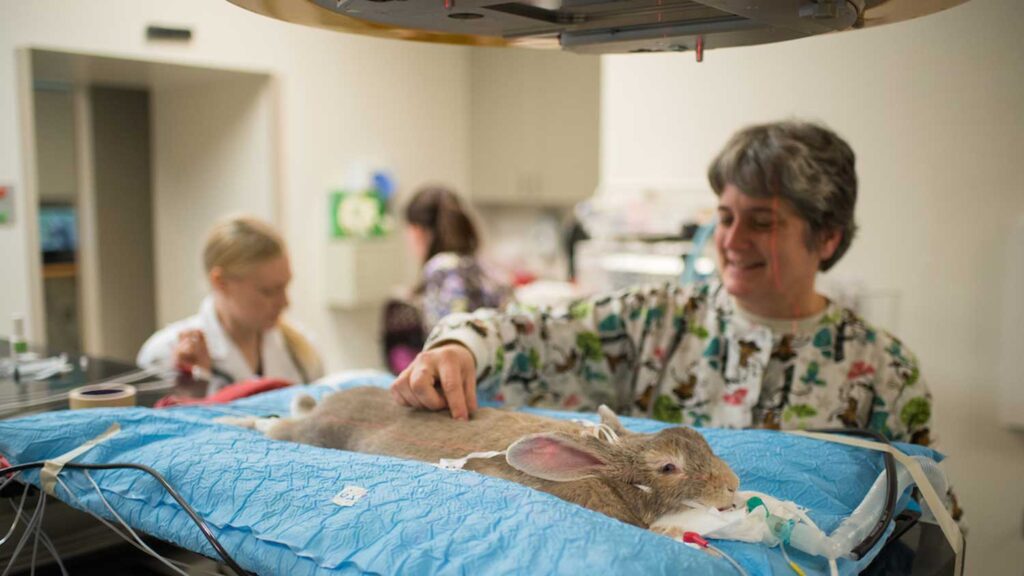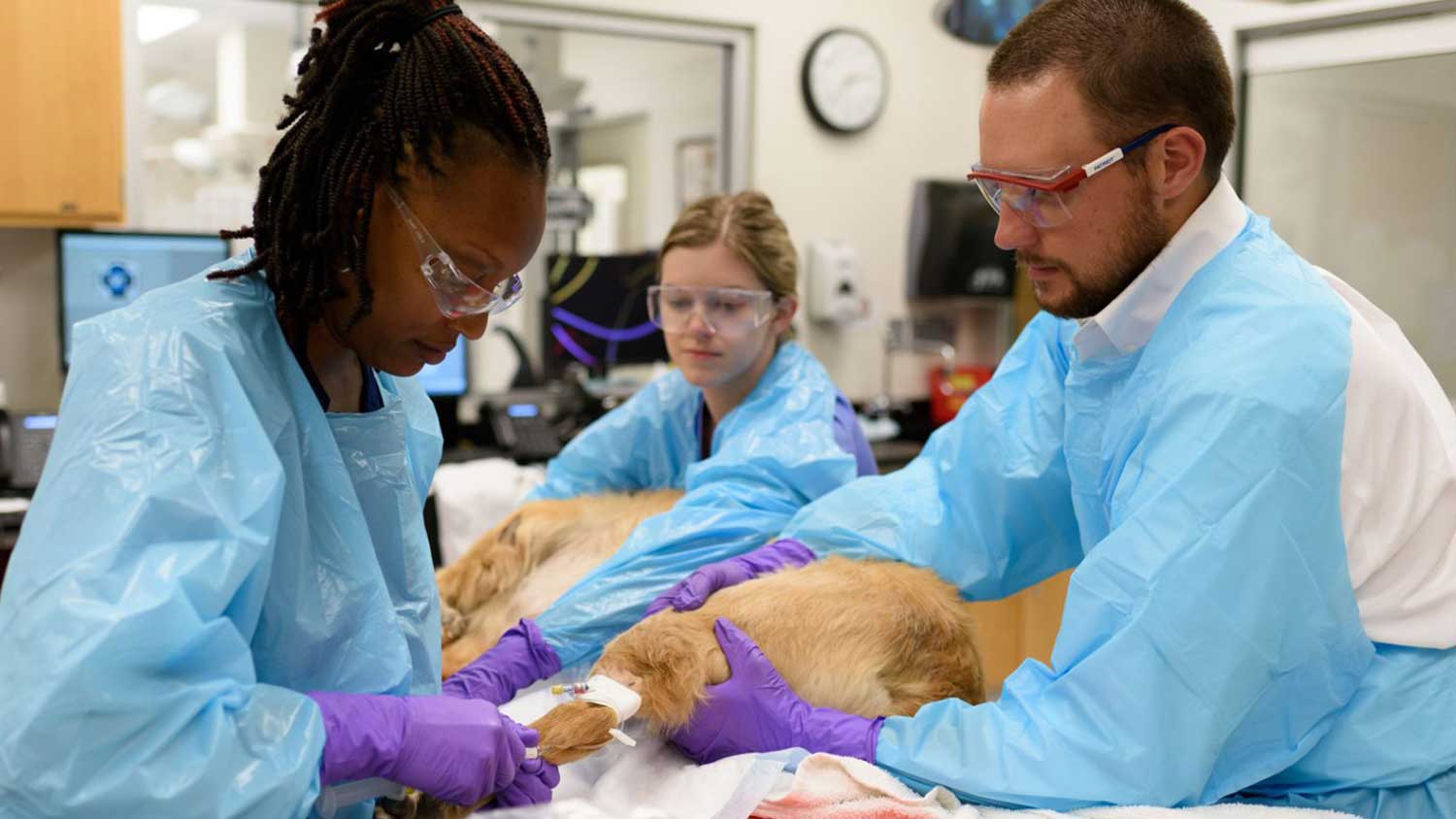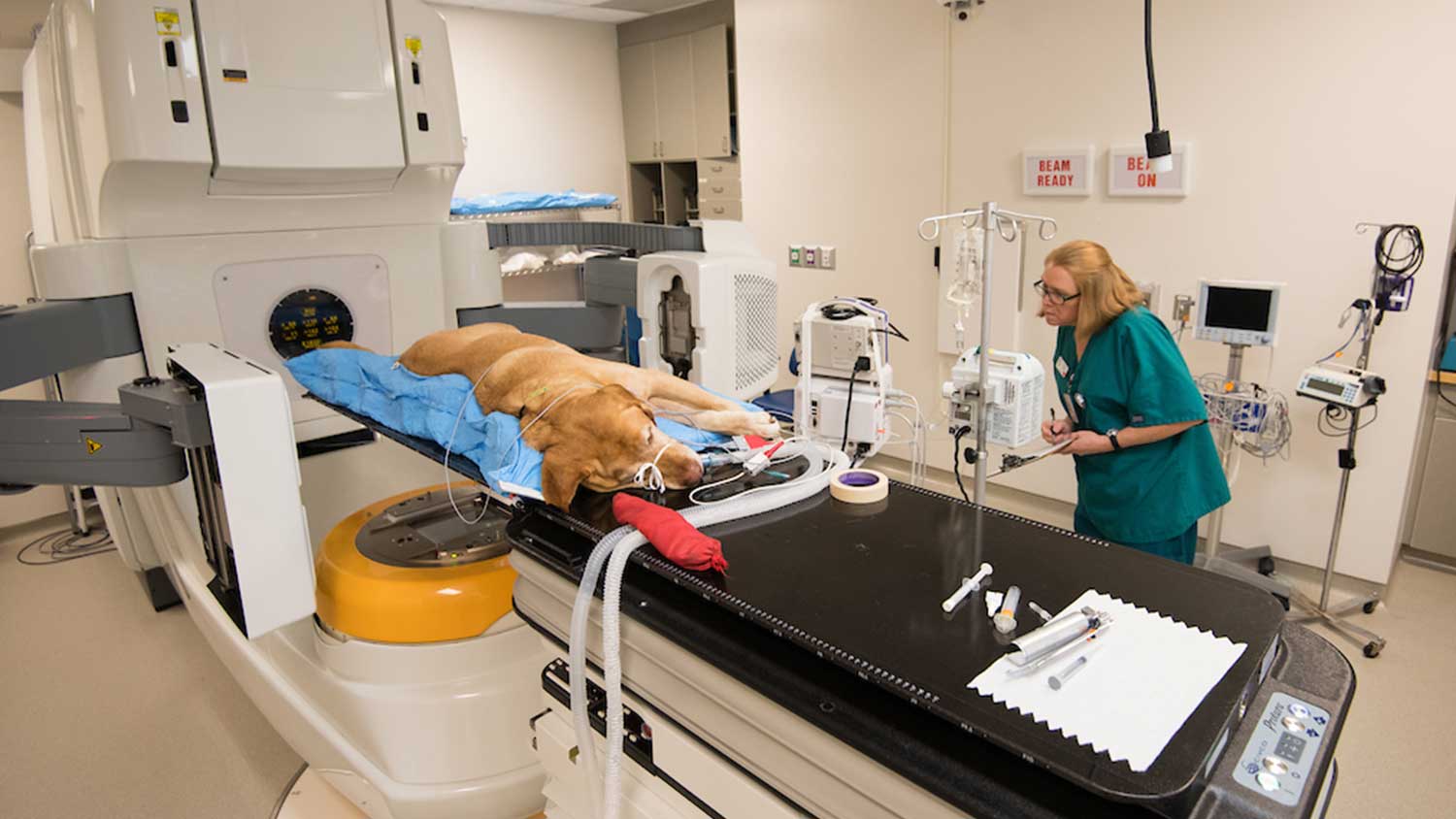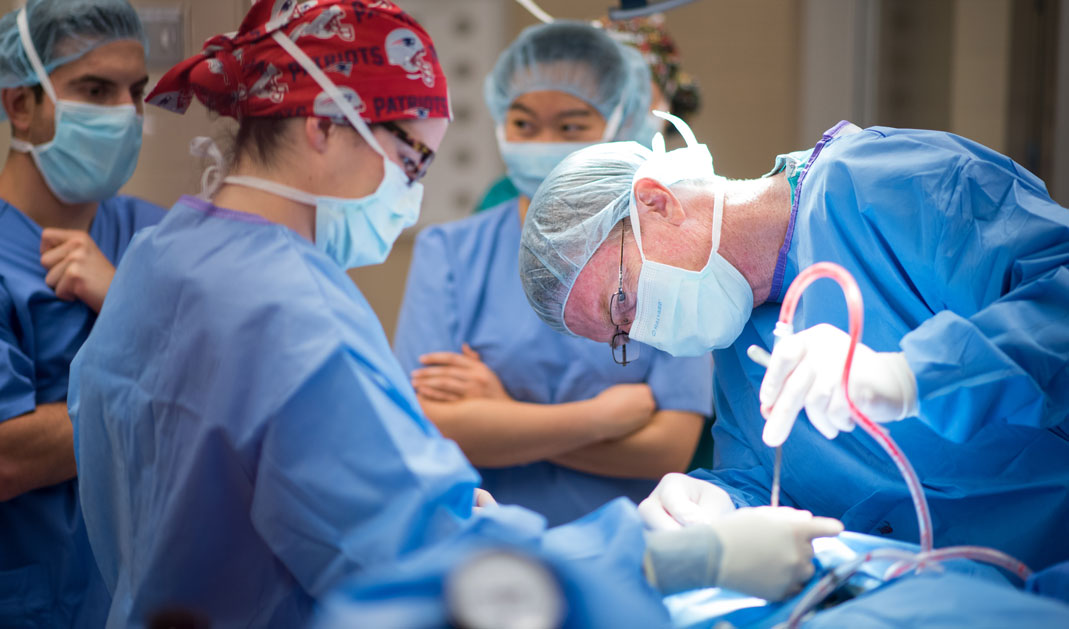Small Animal: Cancer Care/Oncology
Advanced diagnostics, world-leading treatment, and care.

Overview
At NC State, most cancer patients will be referred to see one of our three Oncology Services:
- Medical Oncology: Medical Oncologists have expertise in general oncology, and the treatment of cancer using drug treatments, such as chemotherapy.
- Radiation Oncology: Radiation Oncologists specialize in the use of high energy radiation for treatment of cancer and cancer pain.
- Surgical Oncology: Surgical Oncologists have special training in the use of surgery to biopsy and remove tumors.
After getting a cancer diagnosis, your veterinarian may call upon one of the various services listed above to participate in your pet’s care. In addition to standard testing and/or treatment, many animal cancer patients may also be eligible to participate in clinical trials.
If you have questions about your pet’s eligibility for a clinical trial, please reach out to our clinical research team, and/or ask about it when you meet with one of our veterinarians.
Contact Us
- Hours: Monday through Friday, 8 a.m to 5 p.m
- Phone: 919-513-6690
- Phone Surgical Oncology: 919-513-6050
- Email: NCStateOncology@ncsu.edu


